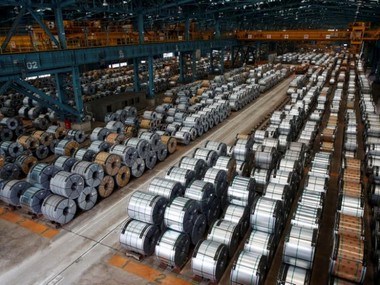India, as also the rest of the world, is currently facing the gravest challenge since the Great Depression of 1930s. We, in India, have responded well to the COVID-19 crisis. We were, for instance, among the first countries to screen inbound international fliers once the China Covid-19 outbreak was reported. The Union government and various state governments have been pro-active to contain the pandemic. Many measures, including a Janata curfew, and a total lockdown, were announced since the pandemic outbreak. Of course, essential commodities were exempted from the lockdown, but, then, these account for only 35 percent of India’s economic pie, according to an estimate. In other words, 65 percent of national economic activity has come to a virtual standstill. Considering the magnitude of the problem, and a looming global recession, I have argued elsewhere that this calls for a ‘New Deal’. Yes, the government has responded well, and the country, including India Inc., will be keenly watching the follow-up measures, even as we stand together in this hour of national, and global, emergency. [caption id=“attachment_4358339” align=“alignleft” width=“380”]  Representational image. Reuters.[/caption] I am of the firm belief that human lives matter the most. Our fellow Indians, and their families, must be safe and secure from this rampaging virus. While we stand together with the nation and the government, here’s a roadmap on how the government could consider resuming economic activities, in a calibrated fashion. These formulations are from someone who keeps India’s interests above everything else. Of course, essential services today are operational. To give you our own example, our steel plants are functioning at approximately 75 percent capacity with a reduced worker density, while following the Union Health Ministry and WHO guidelines to ensure that our employees remain safe. Work in factories, industrial units can be resumed Two most important measures to prevent the spread of COVID-19 are personal hygiene (washing of hands), and physical distancing. If we strictly adhere to these two broad guidelines, there’s no reason why we cannot let our factories and industrial units, which are housed in self-contained campuses, to function. To give another example, any construction activity in a cordoned-off zone, where all safety protocols are enforced, can be resumed to kick-start the economy. Many industrial units in India have their own townships. Whether in Bokaro, or Greater Noida, or in Tuticorin, they are often self-contained. The interface of human settlements here with the outside world can be controlled and monitored, and hence any economic activity here can be resumed, if planned well. All such projects together would account for as much as 50-60 percent of India’s manufacturing activity. We could surely, thus, get India to resume its manufacturing activities, under strict supervision, with a hygiene and health protocol in place. We could, thus, make up for the lost momentum. It is said that the infra projects can add a percentage or two to India’s GDP. All major construction activities—be it four to six-lanes of highways or airport runway construction/expansions—are usually done in zones away from large human settlements. The workforce employed here is usually made to stay in the vicinity of the projects, and their interface with the outer world is limited. This, then, provides a ready template to resume economic activities if a strict enforcement of health and hygiene protocol is done. Similar is the case with the Special Economic Zones. In two-three months’ time, when the COVID-19 pandemic is contained, things would be back to normal in India’s economic cycle as well. Social distancing better at workplaces There’s another side to the story, and this pertains to our behavioral norms. At the workplace, or factory, or shop floor, one normally maintains physical distancing. For, workplaces are often more organised and disciplined. At homes, however, there’s more intermingling, and it’s common to see children playing together, or people hanging out together. It’s a no-brainer where there’s a greater likelihood of the virus spread. Also, at manufacturing units, plants and factories, hotter temperatures provide less chances of the virus’ spread. We are fighting a national, nay, global battle. The world is keenly watching how a country of India’s size, population and density deals with this unprecedented crisis. A UNCTAD report recently noted that India would be one of the two countries that will not be touched by this global recession.
We must show the way ahead, when the world is struggling to come to terms with a virus. This calls for a national resolve—evidenced in ample measure, and behavioural changes on the part of us citizens. Simultaneously, we could get economic activities going in controlled environments.
Among other measures, we should, restrict influx of people from abroad. The planning process needs to be decentralised. We should let every district plan as per its needs, unique requirements, and threats. With all these measures, I am sure, there would be no looking back. (The writer is Chairman, JSPL. He tweets at @MPNaveenJindal. The piece first appeared on his Facebook Page)


)

)
)
)
)
)
)
)
)



